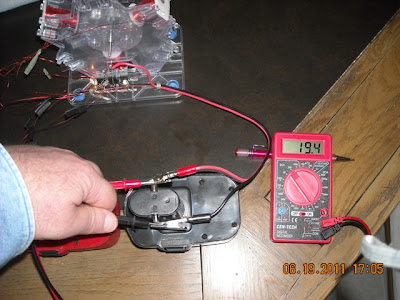Measurement systems

The measurement systems are tough to reform because they are so ingrained in our production systems. Ideally, we would start down at the nano scale and say that at absolute zero temperature and zero pressure the singular hydrogen atom has a diameter of one Dync. There are different isotopes in nature so a normal tank of mixed hydrogen isotopes at room temperature might show an average hydrogen atom diameter of 1.1 Dyncs (I'm just guessing). From there we could scale up to a standard gigadync size that we would use in our normal life scale measurements. Thus it would be easy to measure chemicals and infer roughly how their weights would add up in industrial combinations.
I think that for the time being it will be easier to just stick with the Metric system for distance and mass measurements until we really start colonizing new planets and want to get pure and simple with our measurements. I suggest we change the Milli prefix (one thousandth) to Thili so we don't confuse it with one millionth. To reduce errors we should abandon the use of the: carat, dram, grain, pennyweight, ounce, pound, karat, proof, degree, second, minute, hour, week, month, angstrom, zip codes, guage, inch, hand, foot, yard, rod, chain, league, mile, and knot. I'd leave the furlong for the horse races out of sentimentality, ha.
The real gains in productivity and income come from modernizing the compass measurements and globe coordinates. I propose that on the new compass we start at the top (north) and call one complete counterclockwise rotation a Rev, and break that down into 1,000 individual Jinks, instead of 360 degrees. In my mind we should reference the globe coordinates starting from the present North Rotational Pole at 0 jinks and mark the new increasing latitudes (Dropes) down the international date line to 500 jinks at the South Rotational Pole. Then at the North Pole we could look down along the international date line to the Equator and mark the new longitudes (Travs) starting at 0 jinks and heading east (counterclockwise) until we get back to the international date line at 1000 jinks, or one whole rev.
The benefit of simple coordinate addresses for shipping, the mail, and property surveying would be the obvious ease of finding any location. For example, instead of a three line postal address my front door may be located with a single line within one square foot at: 122.04763 drope, 169.38814 trav (not really). Notice how many new subdivisions start each block with addresses like: 1201, 1203, 1205, 1207, and then make a big jump up to the next block: 1301, 1303, 1305, etc. As a neighborhood develops and gets more dense maybe a house is pulled out and a fourplex apartment is built in its place. How do you fit four residence addresses in between 1203 and 1205?
In surveying real estate you would now normally record the coordinates of the four corners of the property, and how much and what direction the lot has slipped from its 0 date location because of plate techtonics movement.
Telling time will be easy because the new time zones will be marked by every 100 jinks going east from the International Date Line. 2.4 present hours would equal 1 new Trave. One thousandth of a day would equal 1 new Triv, which would equal 0.6944 present minutes. If it is midnight (zero Traves) in Seattle, then it must be 1 deciday (one Trave) already in Chicago. It is more accurate to start calendars on zero days and zero years. Instead of calling the first day Day 1, it should properly be called Day 0. A mixed calendar date and time system would start in total years and switch at the colon to days and parts of days. March 21, 2010 AD at 10:31 AM PST in Seattle would simply be written as 2009:79.4382 PT. And of course we would never adopt the stupid daylight savings time law.
My rough guess is that these simplifications of our measuring systems would increase our GDP by an ongoing 0.01%. This original copyrighted content is the intellectual property of the Space Vanguard SIG.


Comments
Post a Comment